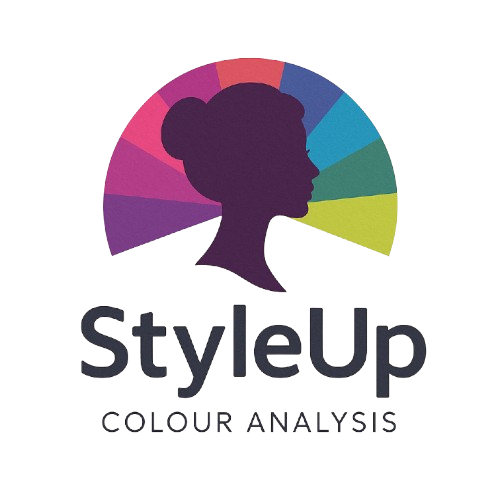Table of Contents
- Introduction
- The Psychology of Colour and First Impressions
- Why Colour Matters in Professional Settings
- Understanding Singapore’s Work Culture and Dress Expectations
- Best Colours to Wear for Job Interviews in Singapore
- Colour Tips for Networking and Corporate Events
- Common Colour Mistakes to Avoid
- How to Build a Balanced Professional Palette
- Conclusion
1. Introduction
In Singapore’s competitive job market, first impressions often make a lasting impact. Whether you’re meeting a potential employer, client, or industry peer, your outfit communicates confidence, credibility, and personality—before you even speak.
While fit and style are important, colour is one of the most powerful nonverbal cues in professional dressing. The right colour can make you appear approachable, capable, and polished, while the wrong one can unintentionally send mixed signals.
Understanding colour psychology and its role in workplace culture can help you dress strategically and leave the right impression in every setting.

2. The Psychology of Colour and First Impressions
Colour influences human emotions and perceptions more than we realise. Here’s how some common colours affect how others perceive you:
| Colour | Impression It Creates | Ideal Context |
|---|---|---|
| Blue | Trustworthy, calm, dependable | Interviews, presentations |
| Black | Strong, authoritative, formal | Leadership meetings, events |
| White | Clean, organised, professional | First meetings, service roles |
| Grey | Balanced, mature, analytical | Corporate offices, consulting |
| Navy | Confident yet approachable | Client-facing roles |
| Pastels | Soft, friendly, creative | Marketing or design industries |
| Red | Bold, energetic, assertive | Sales pitches, events (in moderation) |
Understanding these cues helps you choose colours that align with your professional goals and personality.
3. Why Colour Matters in Professional Settings
Colour isn’t just about aesthetics—it shapes perceptions and emotional responses. In business environments, colours can subtly influence how others interpret your communication style and competence.
- Trust and credibility: Cool tones like navy or blue inspire reliability and confidence.
- Authority and control: Dark shades like charcoal or black project power and seriousness.
- Warmth and approachability: Soft tones like beige, peach, or light pink can make you seem open and friendly.
In Singapore’s multicultural environment, where first impressions matter greatly, understanding colour associations helps you navigate both Western corporate norms and Asian cultural nuances.
4. Understanding Singapore’s Work Culture and Dress Expectations
Singapore’s professional scene blends global corporate standards with local cultural sensibilities. Generally, the dress code depends on the industry:
- Corporate and Finance: Conservative colours like navy, grey, and white dominate. Subtle patterns or pastels are acceptable for a modern touch.
- Tech and Creative Fields: Smart-casual is common—think neutral tops paired with coloured blazers or accessories.
- Hospitality and Retail: Brighter, friendlier tones are encouraged to reflect approachability and service.
Humidity and tropical weather also influence choices—lightweight fabrics and breathable neutrals help maintain a neat appearance without compromising professionalism.
5. Best Colours to Wear for Job Interviews in Singapore
When attending an interview, your goal is to convey competence and cultural fit. Here are some safe yet impactful choices:
a. Navy Blue:
A universal favourite that communicates trust and professionalism. It works well for both conservative and modern companies.
b. Light Grey:
A balanced colour that looks fresh in Singapore’s climate. It signals logic, calmness, and approachability.
c. Soft White or Ivory:
A clean, timeless option that pairs beautifully with other shades. Ideal for shirts or blouses.
d. Pastel Blue or Blush:
Adds subtle personality without overpowering. Works well for roles that value creativity or empathy.
e. Accents of Burgundy or Forest Green:
Perfect for accessories or ties—adds a touch of individuality while maintaining formality.
Pro Tip: Avoid overly bright or neon tones, as they can appear too casual or distract from your professional message.
6. Colour Tips for Networking and Corporate Events
Networking events are more social and informal than interviews, allowing for creative use of colour. The aim is to stand out while staying polished.
- Daytime Events: Try earthy or pastel tones that reflect a relaxed yet elegant vibe. Sage green, beige, and dusty rose work beautifully in natural lighting.
- Evening Events: Richer hues like emerald, navy, or wine red create sophistication under warm indoor lights.
- Corporate Mixers: Combine neutrals with a pop of colour—like a teal blouse under a black blazer—to remain memorable without looking flashy.
Accessories play an important role too: colourful ties, pocket squares, or jewellery can express personality and make conversations easier to start.
7. Common Colour Mistakes to Avoid
Even well-dressed professionals can make subtle mistakes that affect their overall impression.
- Too Much Black: While sleek, an all-black outfit can feel intimidating or overly formal in Singapore’s warm environment.
- Overly Bright Colours: Neon or bold primaries can appear unprofessional or draw attention away from your face.
- Ignoring Skin Undertones: Wearing colours that clash with your complexion can make you look tired.
- Poor Fabric Choices: Shiny or reflective materials can distort colour under fluorescent lighting.
- Lack of Balance: Too many contrasting colours in one outfit can look chaotic. Stick to two or three complementary tones.
Mindful colour selection ensures your outfit enhances, not distracts from, your presence.
8. How to Build a Balanced Professional Palette
Creating a consistent work wardrobe doesn’t require dozens of colours. Instead, build a capsule palette that suits Singapore’s climate and your personal tone.
| Palette Type | Key Colours | Best For |
|---|---|---|
| Classic Neutral | Navy, white, charcoal, beige | Corporate offices and interviews |
| Soft Warm | Cream, camel, peach, olive | Client-facing and creative industries |
| Cool Modern | Slate grey, icy blue, lilac, black | Tech, media, and design environments |
| Smart Casual | Taupe, light denim, terracotta | Startups, events, and networking |
Add personality through accessories like scarves, watches, or shoes while keeping your core pieces neutral and professional.
9. Conclusion
In Singapore’s fast-paced and image-conscious professional world, mastering colour selection gives you a subtle yet powerful advantage. Colours communicate more than words—they reveal confidence, attention to detail, and an understanding of workplace dynamics.
By aligning your wardrobe with the right colours for each occasion, you present yourself as polished, capable, and culturally aware. Whether it’s a first interview or a high-level networking event, let your colours speak the language of success—refined, intentional, and distinctly you.
